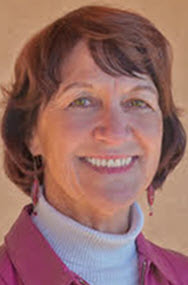 By Mary McPhail Gray
By Mary McPhail Gray
NVW Board Chair
“ Even though I was standing on the top of the Golden Gate Bridge, I didn’t jump.” related Sally (not her real name).
“I was living in California at the time and had experienced homelessness, alcoholism and abandonment by my husband. But I looked down, and I suddenly felt a surge of strength and happiness. I loved life and nature too much to leave it.”
After that, Sally began in earnest the long route to a healthy life.
Sally was the youngest of four children—abandoned by their father when she was one. In her family, she experienced hunger, neglect, sexual abuse and torture. By the time she was ten, her terrors were manifested in binge eating and then anorexia and bulimia.
“I hid a lot, kept very quiet, and did not tell anyone what was happening to me.”
But there were people at school who sensed something was wrong. Mrs. Kimball, her sixth grade teacher took her quietly aside one day and said, “I don’t know what you are going through, but I know you are hurting. I want you to know that you are strong and will get through this.”
It was a private moment of support and honest caring, and Sally still believes it was one of the experiences that gave her strength.
One day her elementary principal sat beside her as she vomited and said “I know I should really call the police, but I know that would make a lot of problems for you. I want you to know that all the teachers know you are really bright. I also know you are really strong.”
At that time, there were no social workers, counselors or therapeutic groups in her school that might have given her support.
Sally remembers spending hours walking in the woods, climbing trees, and sitting very quietly—gathering her balance. She also remembers that her grandparents were a haven of love. She would go to their house and was able to talk and stay overnight. At home, she was often not able to sleep—but at her grandparents there was a music box that they always started for her and she was able to relax and sleep well. Her grandparents did not know of the terrors she experienced at home, but they were always ready to welcome her. “They lived their Christian faith every day,” she said.
In her teen years, Sally used drugs and alcohol and engaged in self-mutilation. She would hang out on the street with gang members “who were also damaged and hurting.” The gang members protected her—let her sit quietly with them—and other students would not bully her because they knew she had protection.
Sally tried suicide several times. She received psychological services and in her twenties was diagnosed with bi-polar, schizophrenia and borderline split personality. She chuckles that finally she had “labels for my problems,” but she is very critical of what labels do to individuals. During her twenties, she independently developed a practice that we would now call mindfulness therapy. She learned that every time she felt an intense emotion—she needed to acknowledge it and recognize its power before she acted impulsively. It took her five years to fully integrate this skill. Sally comments that integrating all her experiences—“loving that very frightened 11-year-old”—has been critical in her recovery. She has grateful memories of childhood friends who would simply sit quietly with her—to keep her from hurting herself—but they would not ask questions or try to “fix me.”
Other more recent helpful experiences have been treatment here in Taos by a “functional physician” who understands how early trauma is manifested later in physical ailments. She also has found Eye Movement Desensitization and Reprocessing therapy (EMDR) to be supportive in relieving anxiety and bringing a sense of calm.
Sally has two children who are talented and successful, and she is now in a healthy relationship with someone she has known for years. This was only possible “when I finally let go of the voices of my parents.”
Sally believes that we are all hurting in various ways and that the greatest gift you can give to another is compassion, empathy, and honest communication. Really look into people’s eyes—be present with them and listen—listen quietly. Do not falsely pretend to understand.
“In spite of all the pain I have experienced, the wisdom and beautiful compassion I feel for others now is a gift to me. I just wish that I had had services to support me in elementary school. I appreciate the many agencies in Taos who work to do that.”
Nonviolence Works is one of the agencies working to provide a safety net of services to Taos youth and families. Contact us at 575-758-4197 or www.nonviolenceworks.us
Mary McPhail Gray is the board chair of NVW and can be reached at 575-779-3126 or mcphailconsulting@gmail.com

